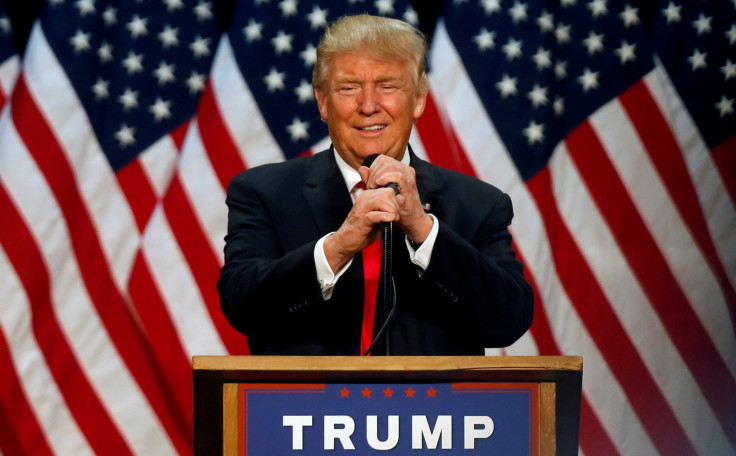Trump Threat To Renegotiate UN Climate Deal Causes Dismay Abroad

Donald Trump’s threat to renegotiate the global accord on climate change if elected U.S. president caused dismay abroad on Wednesday, with many experts saying it was in his interests to embrace a deal seeking to end dependence on fossil fuels.
U.S. insistence on renegotiation could unravel a 195-nation compromise to curb greenhouse gas emissions reached in Paris in December after fraught talks between nations as different as China, the United States, small island states and OPEC members.
“The Paris Agreement is as much in the United States’ interests as any other country,” said Tony de Brum, ambassador for climate change of the Marshall Islands, who, as his country’s foreign minister, helped broker the U.N. deal.
“Seeking to unravel it would not only threaten the U.S. economy, damage its environment, and weaken its security, but it would do a great disservice to all of humanity,” he said.
Republican presidential contender Trump told Reuters on Tuesday he was “not a big fan” of the climate accord and said that countries including China, the biggest emitter of greenhouse gases ahead of the United States, would not stick to the deal.
“I will be looking at that very, very seriously, and at a minimum I will be renegotiating those agreements, at a minimum. And at a maximum I may do something else,” the New York real estate mogul said.
Many experts believed Trump would reluctantly accept the deal, seeking to transform the world economy from fossil fuels in coming decades to slow global warming, if elected and that most nations would push ahead regardless of Washington.
Senior government officials are meeting in Bonn, Germany, from May 16-26 to find ways to implement the deal, which aims to slow a rise in temperatures blamed for causing floods, more powerful storms, droughts and rising sea levels.
‘Unthinkable’
The United Nations declined comment but Christiana Figueres, the U.N.’s climate chief, told Reuters last month that “it seems unthinkable that, whatever political complexion is in the White House next, cannot see the self-evident economic and social benefits” of cutting emissions by sticking with the accord.
In the United States, “many states, cities and citizens are already moving towards a low carbon 21st century,” she said.
A senior delegate at the Bonn talks, who asked not to be named, said many countries reckoned Trump was bluffing. Many Republican lawmakers do not believe that man-made emissions are warming the planet.
Trump’s easiest option is to neglect the Paris Agreement if elected, legal experts say. The accord has no sanctions for noncompliance and is built from voluntary national plans.
President Barack Obama has set a goal of cutting U.S. emissions by between 26 and 28 percent by 2025 from 2005 levels. Trump could ignore the target and promises to help developing nations cope with global warming.
Environmental groups said Trump would harm U.S. interests.
“Any government that would want to turn its back on the Paris Agreement would be going against all commercial, economic and political trends,” said Samantha Smith of the WWF conservation group.
“This is simply more proof that Trump’s international antics would isolate the United States around the world and only ‘negotiate’ away American leadership,” said Khalid Pitts, of the Sierra Club.
Last week, U.S. chief climate envoy Jonathan Pershing said other nations were likely to push ahead with the Paris Agreement whoever wins the White House. China, he said, was acting partly to curb air pollution from fossil fuels.
“One of the most powerful outcomes in Paris was that it was not a contingent thing,” he said.
The Paris Agreement will formally enter into force when 55 nations representing at least 55 percent of world greenhouse gas emissions have ratified it. China and the United States, representing 38 percent, say they will join this year.
If the deal enters into force before the next U.S. president takes office next year, it will in theory be harder to pull out. Article 28 says any nation wanting to leave has to wait four years from the date of entry into force — the length of a U.S. presidential term.
© Copyright Thomson Reuters 2024. All rights reserved.





















